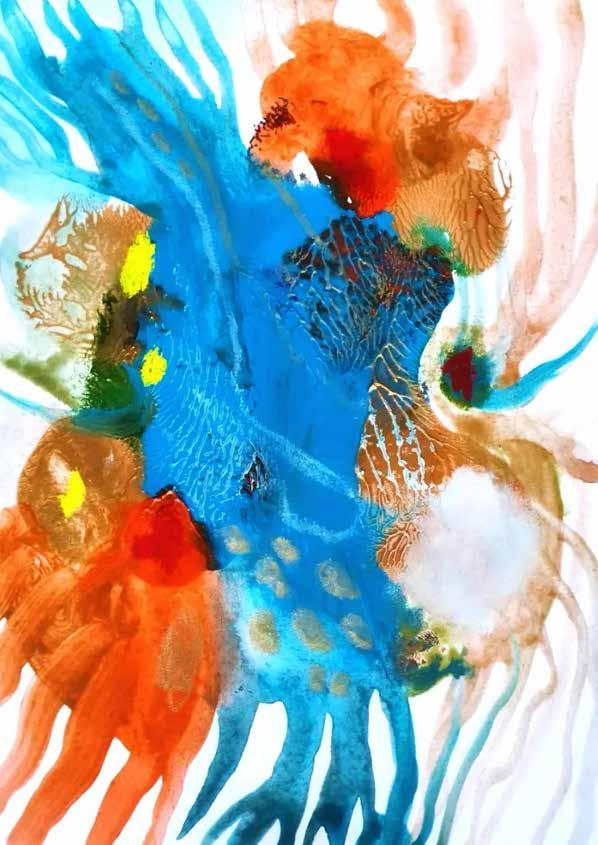
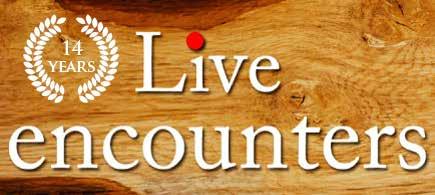
Poetry, Song, and Tortured Poets April 2024 Free Online Magazine From Village Earth P O E T R Y & W R I T I N G 2010 - 2024 Cover Artwork ‘Fire On Icy Waters’ by Irish Artist Emma Barone John Philip Drury

© liveencounters.net POETRY & WRITING April 2024 Celebrating 14th Anniversary L I V E E N C O U N T E R S M A G A Z I N E
The Caves of Pakou is, perhaps, one of the most treasured religious symbols of the Luang Prabang Province. Photograph by Mark Ulyseas.
©Mark Ulyseas
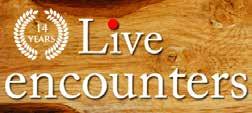
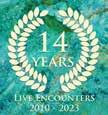
Support Live Encounters.
Donate Now and Keep the Magazine Live in 2024
Live Encounters is a not-for-profit free online magazine that was founded in 2009 in Bali, Indonesia. It showcases some of the best writing from around the world. Poets, writers, academics, civil & human/animal rights activists, academics, environmentalists, social workers, photographers and more have contributed their time and knowledge for the benefit of the readers of:
Live Encounters Magazine (2010), Live Encounters Poetry & Writing (2016), Live Encounters Young Poets & Writers (2019) and now, Live Encounters Books (August 2020).
We are appealing for donations to pay for the administrative and technical aspects of the publication. Please help by donating any amount for this just cause as events are threatening the very future of Live Encounters.
Om Shanti Shanti Shanti Om
Mark Ulyseas Publisher/Editor

All articles and photographs are the copyright of www.liveencounters.net and its contributors. No part of this publication may be reproduced without the explicit written permission of www.liveencounters.net. Offenders will be criminally prosecuted to the full extent of the law prevailing in their home country and/or elsewhere.
2024 April POETRY & WRITING © liveencounters.net P O E T R Y & W R I T I N G April 2024

Contributors
© liveencounters.net POETRY & WRITING April 2024 Celebrating 14th Anniversary

John Philip Drury - Guest editorial
Richard W Halperin
LaWanda Walters
Linda Adair
Edward Caruso
Jordan Smith
Ndue Ukaj
Justin Lowe
Caterina Mastroianni
David Ratcliffe
Dorian Stoilescu
Michael J Leach
Patricia Sykes
Claudia Serea
Peter A Witt
Trevor Landers April
2024 April POETRY & WRITING © liveencounters.net P O E T R Y & W R I T I N G
2024
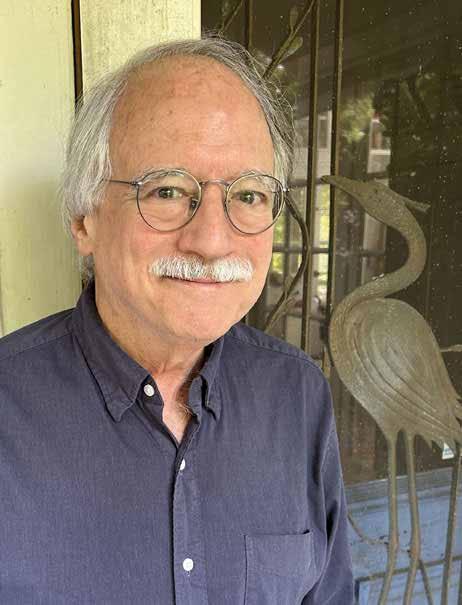
© liveencounters.net POETRY & WRITING April 2024 Celebrating 14th Anniversary G U E S T E D I T O R I A L
John Philip Drury. Photo credit: Tess Despres Weinberg.
John Philip Drury is the author of five books of poetry: The Disappearing Town and Burning the Aspern Papers (both from Miami University Press), The Refugee Camp (Turning Point Books), Sea Level Rising (Able Muse Press), and The Teller’s Cage (Able Muse Press, 2024). He has also written Creating Poetry and The Poetry Dictionary, both from Writer’s Digest Books. His awards include an Ingram Merrill Foundation fellowship, two Ohio Arts Council grants, a Pushcart Prize, and the Bernard F. Conners Prize from The Paris Review for “Burning the Aspern Papers.” He was born in Cambridge, Maryland, and grew up in Bethesda, raised by his mother and a former opera singer she called her cousin but secretly considered her wife. (His book about them, Bobby and Carolyn: A Memoir of My Two Mothers, will be published by Finishing Line Press in August 2024.) After dropping out of college and losing his draft deferment during the Vietnam War, he enlisted in the Army to learn German and served undercover in the West German Refugee Camp near Nuremberg. He used benefits from the GI Bill to earn degrees from Stony Brook University, the Writing Seminars at Johns Hopkins, and the Iowa Writers’ Workshop. After teaching at the University of Cincinnati for 37 years, he is now an emeritus professor and lives with his wife, fellow poet LaWanda Walters, in a hundred-year-old house on the edge of a wooded ravine.
John Philip Drury Poetry, Song, and Tortured Poets
Part of the news entangled with this year’s Super Bowl and the 2024 Grammy Awards was the announcement by Taylor Swift that her new album would be released in April, just in time for National Poetry Month (chosen for that honor because T.S. Eliot, or one of his personae in The Waste Land, called it “the cruellest month,” responsible for “mixing / Memory and desire”). The title of her new release will be The Tortured Poets Department, and the combination of “cruelty” and “torture” certainly constitutes a semantic rhyme. But the word “Poet,” so prominently displayed, is what has stirred derision and debate among poets on Facebook.
Viewing the online volleying, I was especially struck by a post from Les Kay, a poet and former PhD student of mine. In a reply to a comment, he says, “I don’t hold to the opinion that songs and poems are equivalent. Though I do think of poems as a kind of song. To me (despite what the Nobel Prize committee has said) they’re wildly different genres & in my experience, the one sort of writing is not like the other (just as writing a short story isn’t the same as writing an essay).”
As someone whose songwriting as a teenager led to writing poems for the page, I’ve thought about this distinction between genres for decades. I’ve taught many iterations of a Music and Poetry course, and one course on The Poetry of Bob Dylan. My belief is that all song lyrics are poems, but most lyrics in popular songs are bad or mediocre as poems. They don’t have to be imaginative, rich in imagery, or inventive in diction, since the music and the production in the recording studio provide sonic energy, the propulsion of percussion, and locomotion. All the words need to do is flash emotional cue cards, preferably clever, providing hooks to accompany the catchiness of the melodies and chord progressions.
2024 April POETRY & WRITING © liveencounters.net
J O H N P H I L I P D R U R Y
© John Philip Drury
I’m not even sure that song lyrics belong in a different genre, like epic, narrative, epistolary, satirical, or dramatic poems. The arena of lyric poetry contains multitudes, some singing and some thinking quietly. But I don’t think they’re different in kind.
In the opening paragraph of Rhyme’s Reason: A Guide to English Verse, John Hollander points out the difference between verse and poetry, making the point that “The study of rhetoric distinguishes between tropes, or figures of meaning such as metaphor and metonymy, and schemes, or surface patterns of words. Poetry is a matter of trope; and verse, of scheme or design. But the blueprints of verse can be used to build things made of literal, or nonpoetic material—a shopping list or roadside sign can be rhymed— which is why most verse is not poetry.” Prose poems, for example, are not verse, and they qualify as poems through feats of imagination and observation. If they do not succeed in that performance, they are merely prose. For anyone interested in the historical relationship between music and poetry, John Hollander’s Vision and Resonance: Two Senses of Poetic Form offers an erudite and fascinating discourse.
I’m interested in Les Kay’s notion of “poems as a kind of song,” the vice-versa of this comparison. Although most songs are rhymed and in meter, the poem-as-song could certainly be written in free verse, like the long lines of Walt Whitman’s “Song of Myself.” In my Music and Poetry courses, I devoted one class to a consideration of Section 15, which begins “The pure contralto sings in the organ loft, / The carpenter dresses his plank, the tongue of his foreplane whistles its wild ascending lisp” and continues with a marvelous, imagistic, and musical catalogue of people all over the United States of America in 1855. Although everyone knows that Whitman’s long lines and anaphora owe a debt to the King James version of the Bible, Whitman once said, “But for opera I would never have written ‘Leaves of Grass.’” Ed Folsom, co-director of the online Walt Whitman Archive, has noted that there’s “a long history of Whitman talking about his own poetry as being very much operatic. Critics have seen in his poetry a kind of continual interplay between something you might think of as recitative, and something you might think of as aria.” In class, we went around the room, each of us reading a line, and then we watched a video of Luciano Pavarotti singing the recitative “Tombe degli avi miei” and the aria “Fra poco a me ricovero” from Gaetano Donizetti’s Lucia di Lammermoor (https://www.youtube.com/watch?v=AR3kB5Zhzj0), an opera Whitman reviewed in the Brooklyn Daily Eagle in 1847. I don’t think he knew much Italian, and neither did members of my class, but we could hear the surging cadences of the melodies.
© liveencounters.net POETRY & WRITING April 2024 Celebrating 14th Anniversary
G U E S T E D I T O R I A L
Suppose that recorded music simply disappeared (through a global power failure or digital apocalypse), and the only evidence remaining lay in printed lyrics. How would that be different than words originally written to be sung (like the odes of Sappho) for which the melody and accompaniment on the lyre had not been notated? We could still consider and judge the surviving words: Good poem or bad? Poem or non-poem? Poetry or merely verse?
Anthologies and textbooks have presented anonymous traditional ballads, such as “Sir Patrick Spens” and “Barbara Allen,” as poems for over a hundred years, most often without the music. The first sestinas, by Troubadours Arnaut Daniel and Bertran de Born, were actually songs, and a medieval score has survived. Most of the musical settings of Shakespeare’s songs have been lost, but they appear as poems in his plays. I would single out several: “When daisies pied and violets blue” and “When icicles hang by the wall,” representing Spring and Winter at the end of Love’s Labour’s Lost; “Sigh no more, ladies, sigh no more” in Much Ado about Nothing; “Under the greenwood tree” and “Blow, blow, thou winter wind” in As You Like It; “O mistress mine, where are you roaming?” and “Come away, come away, death” in Twelfth Night; “Full fathom five thy father lies” in The Tempest. By the way, Hugh Kenner, who was my teacher at Johns Hopkins University, said in class that while visiting Warwickshire, the county where Stratford-upon-Avon is located, he heard a story that illuminated two lines, “Golden lads and girls all must, / As chimney sweepers, come to dust,” in the song “Fear no more the heat o’ the sun” from Cymbeline. The local expressions “golden lads” and “chimney-sweepers” refer to dandelions in their two stages: as flowers in full bloom and as puff-balls that children enjoy blowing away to float through the air.
Most of us can make qualitative judgments about which song lyrics qualify as poems and which are merely verse. (If all lyrics are poems, of course, we could also distinguish between good and bad/mediocre poems.)
Here’s a prompt for some literary criticism: Select a few song lyrics that you would consider good as poems, not just serviceable words. Confining myself to folksingers who died in the 1980s, I would single out, first, “Slip of the Hand” by Dave Gordon, a blind, nearly forgotten songwriter from Dayton, Ohio, who lost his sight because of cancer at age three and died in his early thirties.
2024 April POETRY & WRITING © liveencounters.net
J O H N P H I L I P D R U R Y © John Philip Drury
The song appeared on his album Natural Causes, which was recorded and released by the now defunct Vetco Records in Cincinnati. Luckily, it’s available on Youtube (
https://www.youtube.com/watch?v=TYZ4P0G1F4s). Here are the lyrics, which I’ve just transcribed:
Well, the High Point Police were my buddies
And Saturday evening we’d meet
While I was neglecting my studies
They’d chase me down Sycamore Street
It was kind of like going out dancing
With the whistles and lights flashing red
They must have thought I was Charles Manson
And the sirens was music instead ’Cause they beat the time on my head
If I had it all to do over again
I’d shout it from each witness stand
That the difference between the dirty and clean Was only a slip of the hand
I guess I was seeing my share of
The laws being broken and bent
But next thing that I was aware of Ohio was paying my rent
We held up a Seven-Eleven
The son of a banker and me
Now I’m number twelve-six-oh-seven
And he’s member FDIC
So Mister, oh say can you see
© liveencounters.net POETRY & WRITING April 2024 Celebrating 14th Anniversary
G U E S T E D I T O R I A L
It’s the end of your future, the end of your youth
The end of whatever you planned
From reaching for stars to a life behind bars
Is only a slip of the hand
Now outside these walls are the faces
Of people whose freedom was bought
Of people with friends in high places
And others who never got caught
And they tell us that prices have risen
And most of us think that’s a crime
But here in the Lucasville prison
We’re having a hell of a time
And they tell you you gotta be strong, son
Don’t steal, don’t gamble or fight
But there’s too many strong to do nothing that’s wrong
And not enough strong to do right
Sweet Jesus, I’m lonesome tonight
And how can I shut up and how can I sleep
Knowing some of you don’t understand
That any fool kid coulda done what I did
With only a slip of the hand
So you High Point Police in your cruisers
And all of you cops on the beat
Go line up a few local losers
And chase ’em down Sycamore Street
The chorus simply repeats “Slip of the hand, slip of the hand, only a slip of the hand.” I’ve also taken liberties with some of the spelling and possible line breaks.
2024 April POETRY & WRITING © liveencounters.net
J O H N P H I L I P D R U R Y © John Philip Drury
The other song I’d single out is “The Mary Ellen Carter” by Stan Rogers, a vivid and moving account of raising a sunken ship. The lyrics appear on the Genius website (https://genius.com/Stan-rogers-the-mary-ellen-carter-lyrics). Here’s the third verse (or stanza in a poem):
All spring, now, we’ve been with her on a barge lent by a friend
Three dives a day in a hard-hat suit and twice I’ve had the bends
Thank God it’s only sixty feet and the currents here are slow
Or I’d never have the strength to go below
But we’ve patched her rents, stopped her vents, dogged hatch and porthole down
Put cables to her, fore and aft, and girded her around
Tomorrow noon, we hit the air and then take up the strain
And make the Mary Ellen Carter rise again
Both of these songs strike me as convincing persona poems, rich in details, with brilliant, colloquial displays of poetry in the lyrics. Neither is based on personal experience.
Another song containing a dramatic monologue now occurs to me: Joni Mitchell’s “Raised on Robbery.” After some introductory lines describing a man “sitting in the lounge of the Empire Hotel” and a “lady in lacy sleeves,” the woman recounts some of her erotic misadventures. Here’s the third verse (or stanza):
I’m a pretty good cook
I’m sitting on my groceries
Come up to my kitchen
I’ll show you my best recipe
I try and I try but I can’t save a cent
I’m up after midnight cooking
Trying to make my rent
I’m rough but I’m pleasin’
I was raised on robbery
© liveencounters.net POETRY & WRITING April 2024 Celebrating 14th Anniversary
G U E S T E D I T O R I A L
Fans of the poetry in Joni Mitchell’s songs should look up Lesley Jenike’s “Sweet Bird,” first published in The Rumpus (November 29, 2018, https://therumpus.net/2018/11/ sweet-bird/). While I’m especially fond of the album Blue (1971),which contains songs like “Carey” (with lines such as “My fingernails are filthy, I got beach tar on my feet / And I miss my clean white linen and my fancy French cologne” and “Come on down to the Mermaid Café and I will / Buy you a bottle of wine / And we’ll laugh and toast to nothing and smash our empty glasses down”), Lesley (another former PhD student of mine) prefers the jazzier songs in The Hissing of Summer Lawns, released four years later, which she finds “more like narrative poetry sung over experimental jazz, an underlying ‘savage servility’ [quoting Robert Lowell’s “For the Union Dead”] sliding by on the music’s lounge-y, decadent grease.”
Taylor Swift, who may or may not be a “tortured poet,” is also a fan of Joni Mitchell’s songs, and her own album Red is apparently a response. Are her lyrics good as poems or are they merely serviceable as conveyers of emotion? As far as I know, I have never consciously heard any of her songs, so I thought it might be interesting to sample her lyrics by themselves, keeping in mind that doing so takes them out of their musical context.
My first impression is that they revel in flashes of vivid images, striking details, and pungent observations. Her song “august,” for example, begins with “Salt air, and the rust on your door.” An earlier song, “All Too Well,” includes some telling specific details, such as “left my scarf,” “in your drawer even now,” “getting lost upstate,” “Photo album on the counter,” “tee-ball team,” and “dancin’ ’round the kitchen in the refrigerator light”: clues that furnish evidence for a confessional story. The song also contains a caustic and memorable observation: “You kept me like a secret, but I kept you like an oath.” Her voice (in the sense of a poem’s speaker) is certainly distinct, and one of my rules of thumb is that when the voice in a poem is compelling, the poet can get away with just about anything. It helps, actually, that she has an obsessive theme, the vicissitudes of love, since obsessions often engender powerful, deeply rooted poetry, like Theodore Roethke’s greenhouse poems. Obsessions are like power tools for poets.
The title of her new album, The Tortured Poets Department, sounds ironic, a little snarky, partly self-deprecating and partly self-promoting.
2024 April POETRY & WRITING © liveencounters.net
J O H N P H I L I P D R U R Y © John Philip Drury
But it makes me think of Russian poet Osip Mandelstam (1891-1938), who was literally a tortured poet, arrested and imprisoned because of writing “The Stalin Epigram” (translated here by W.S. Merwin and Clarence Brown):
Our lives no longer feel ground under them. At ten paces you can’t hear our words.
But whenever there’s a snatch of talk it turns to the Kremlin mountaineer,
the ten thick worms his fingers, his words like measures of weight,
the huge laughing cockroaches on his top lip, the glitter of his boot-rims.
Ringed with a scum of chicken-necked bosses he toys with the tributes of half-men.
One whistles, another meows, a third snivels. He pokes out his finger and he alone goes boom.
He forges decrees in a line like horseshoes, One for the groin, one the forehead, temple, eye.
He rolls the executions on his tongue like berries. He wishes he could hug them like big friends from home.
(For other translations, the original Russian text, and Ian Probstein’s commentary, see Charles Bernstein’s post in Jacket2: https://jacket2.org/commentary/ian-probsteinmandelstam-stalin-epigram.)
I hope that Mandelstam is on Taylor Swift’s reading list. He was 47 years old when he perished in a Soviet transit camp near Vladivostok, the same age as Alexei Navalny.
© liveencounters.net POETRY & WRITING April 2024 Celebrating 14th Anniversary
G U E S T E D I T O R I A L
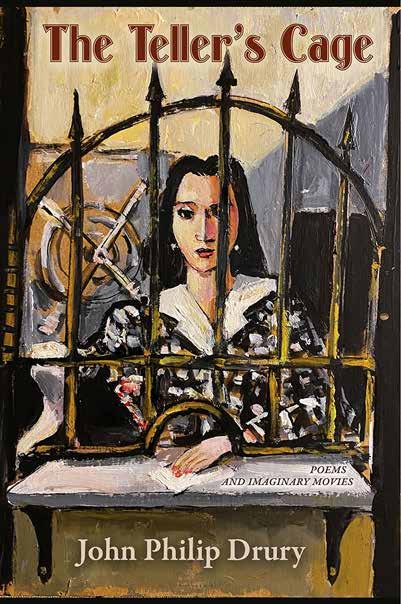
The Teller’s Cage: Poems and Imaginary Movies (Able Muse Press, 2024). The image is a painting by Mark Andres. The cover design is by Alexander Pepple, the editor and publisher of Able Muse Press. The book is available here: https://www.ablemusepress. com/books/john-philip-drury-the-teller-s-cage-poems-and-imaginary-movies.
2024 April POETRY & WRITING © liveencounters.net J O H N P H I L I P D R U R Y © John Philip Drury

© liveencounters.net POETRY & WRITING April 2024 Celebrating 14th Anniversary A C I T Y O F C H U R C H E S
Richard W. Halperin. Photo credit: Joseph Woods.
Richard W. Halperin holds U.S.-Irish dual nationality and lives in Paris. Since 2010, he has seen four poetry collections published by Salmon/Cliffs of Moher, and sixteen shorter collections published by Lapwing/Belfast. His work is part of University College Dublin’s Irish Poetry Reading Archive. Mr. Halperin’s next reading will be on 4 May, Achill Island, as part of the Heinrich Böll Memorial Weekend. The launch of his Selected and New Poems, Introduction by Joseph Woods, is anticipated by Salmon for early June, Dublin.
A City of Churches
I am a city of churches. Some of these are empty. I had that feeling when I was a child, and I still have it. Others of my churches have a few people in them, or many, or – as in a novella of Henry James – only one person praying or thinking or remembering. I do not know why I think of myself as a city. Maybe some poems of Auden’s prompt it, he often describes himself as a city. Maybe the wars going on now, prompt it. I think Henry James died of grief at the war which arrived when he was an old man. I know that I myself am not sensitive enough to die of grief. I am not suggesting that anyone –peace makers, war makers, those in-between –is a city, let alone a city of churches. But I am. These days.
2024 April POETRY & WRITING © liveencounters.net
R I C H A R D W H A L P E R I N © Richard W. Halperin
Corn Moon
A gathering at harvest time. In a letter, a cousin in North America places next to the names of relations and friends who had recently died a photograph of a corn moon –September – rising over a lake at night.
One first learns in school, or if one is raised on a farm one knows anyway, that at harvest good things are gathered.
Corn moon.
No one knows what a photo really is. No one knows what the eye really sees. There is no pride in this. The retina registers things upside-down.
There is no precision in this, the universe has no North.
There is hope and love in this and corn moon, which moves slowly over what has happened.
© liveencounters.net POETRY & WRITING April 2024 Celebrating 14th Anniversary
A C I T Y O F C H U R C H E S
Indications 2
Jack Brereton, 1943 - 2023
Arrau playing Chopin. Callas singing Norma. Life can hold no more on a rainy day.
There is a second world which is the first world beckoning.
There is beauty which leads beyond the kindness and the cruelty and the waste.
There is a bright side which cannot be known certain without suffering.
The letting go of life for something else, a letting go without rancour.
One’s attention is being caught by something else.
There is a walk in Clare in any weather at all, the entire sky a companion.
There is. Yes, there is.
2024 April POETRY & WRITING © liveencounters.net
R I C H A R D W H A L P E R I N © Richard W. Halperin
‘Her Band of Gold Always Caught the Light,’ Revisited
Today I open an envelope sent by Elizabeth, my cousin who lives in Ringgold, Georgia. Elizabeth indicates rather than writes, never more than two dozen words. Out fell an article of hers, top of page 5A, the Rolla Daily News, 26 June 2007: ‘Her band of gold always caught the light,’ a reminiscence of her mother Lillian. There she is, a photo of her, circa 1936, atop Elizabeth’s not more than two hundred words – a strong young woman emerging from shadow, the head tilted slightly down, a half-smile, thick beautiful brown eyebrows, a broad forehead kind and troubled and kind. The left hand rests near the shoulder of the black dress. On one finger, the ring that her husband Jack had given her, yes, catches the light, as it later did when (Elizabeth writes) Lillian would play piano for her children, the ring lost now (Elizabeth writes), meaning, is somewhere.
© liveencounters.net POETRY & WRITING April 2024 Celebrating 14th Anniversary
A C I T Y O F C H U R C H E S
An article in a newspaper – local news as befits the universe. About things lost and found and lost. About Lillian. Also about Elizabeth’s late husband Myron (another love match). Also about human dignity, and the dignity of so-called things. Reading it, seeing the photos, I am less ashamed of the human condition. Four days ago I thought of Harry, twenty years my senior, my first real friend, dead in 1975. And, with him the thought that, of one’s first real friend – and here I mean, first; real; friend – one could say, ‘He sank deep into the soft wax of my capacity to love.’ I had half-forgotten that, until Lillian and Jack and my father and Myron and my wife and Harry and my mother and that astonishing rest, came tumbling out of an envelope from a cousin in Ringgold Georgia who notices what catches the light.
Elizabeth A. Farrell, 1942 – 2021.
Tonight, I have reread the poem. Time has added to it. Time has deepened the light.
2024 April POETRY & WRITING © liveencounters.net R I C H A R D W H A L P E R I N © Richard W. Halperin
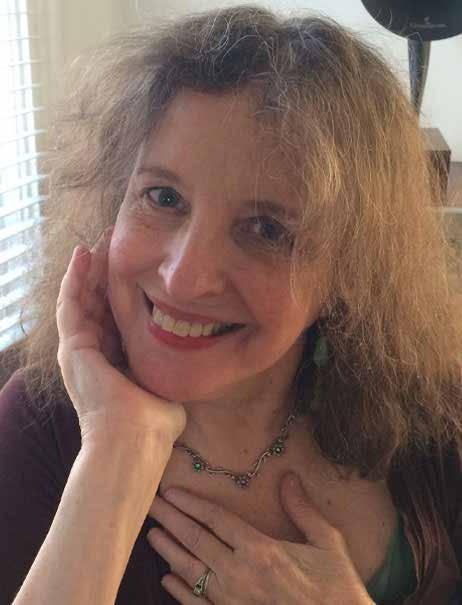
© liveencounters.net POETRY & WRITING April 2024 Celebrating 14th Anniversary L E T T I N G T H E L A K E H O U S E G O
LaWanda Walters
LaWanda Walters earned her M.F.A. from Indiana University, where she won the Academy of American Poets Prize. Her first book of poems, Light Is the Odalisque, was published in 2016 by Press 53 in its Silver Concho Poetry Series. Her poems have appeared in Poetry, Georgia Review, Nine Mile, Radar Poetry, Antioch Review, Cincinnati Review, Ploughshares, Shenandoah, The American Journal of Poetry, Laurel Review, North American Review, Southern Poetry Review, Alligator Juniper, and several anthologies, including Best American Poetry 2015, Obsession: Sestinas in the Twenty-First Century, and I Wanna Be Loved by You: Poems on Marilyn Monroe. She received an Ohio Arts Council Individual Excellence Award in 2020. She lives in Cincinnati with her husband, poet John Philip Drury.
Gold Stars on a Mozart Minuet
Searching FlightAware for my daughter’s arrival from Vienna, I see the yellow planes clumped helter-skelter together on the screen, like the sticky, gold-foil stars Mama used to place
on the sheet music where a child had made good progress. She knew the meaning of reward over punishment, having been an adopted, lame child in dirt-poor Mississippi. Her daddy was the kinder
one, giving her three Shetland ponies and an accordion when they could not afford it. Her “mother” disapproved, the thin kind of lady who was such a good Christian she’d taken Mama in. But the man she called Daddy loved
and watched out for her. We get our mothering wherever we can find it. And just today, when my daughter arrives from the country where Mozart ended up in an unmarked grave, I know how close we are all to it—the people saying never
to children whose faces reflect their terror at what is alien, no mothers for you, but here’s a blanket of aluminum.
2024 April POETRY & WRITING © liveencounters.net
L A W A N D A W A L T E R S © LaWanda Walters
Letting the Lake House Go
In memory of Sally Elder Kamholtz
The lake house glimmers like a fiction. It has that glamour, that sense of flurry and regret, its pier a long, white glove, an arabesque of an arm, Mrs. Dalloway rushing to greet us, reaching over the sapphire space between us.
It’s a painting of a house with a pier from which lucky children jump for a time. A lake house like this might mean wealth or who lived first in a town. Its spacious back to the lake and attached boathouse suggest two-piece swimsuits and desire, a woman’s back in a zipped-up dress, a film like Body Heat with its jazzy score, with Kathleen Turner in white, wind chimes at night, that sullen, curvy tango, that riff of tenor saxophone winding down and around. I remember being young and having just seen the film, so dazed by the music’s heat and the woman’s getting away that I followed my husband right into the men’s room at The Esquire. Some sweet men at the urinals laughed— we were all the same, all in love with Kathleen Turner, the blood-beat jazz of the saxophone
© liveencounters.net POETRY & WRITING April 2024 Celebrating 14th Anniversary L E T T I N G T H E L A K E H O U S E G O
In E.B White’s essay, he tries to explain— to himself and to us—the shock he knew on returning, and not returning, to the lake he knew as a boy, a place he describes as his “favorite haunt.”
From the point-of-view of my friend’s artwork, we are looking back at the pier and the house. We are flimsy as White’s ghost, poised out here in the middle of a lake, able to keep nothing. And the white pier tripping out to us glitters, which is why, at first, instead of the pier I saw a reflection of light in the water.
I saw the broken-up waves of sunlight— the dabs and jabs of cobalt blue and titanium white, chrome yellow and viridian that give light the substance of ripples, of water moving in the sun. And then thought, No, this was their pier, made of pine and tar. Someone must have gone out in a boat to take the photograph from this angle.
When things are over, they’re a story, no longer the foam and sweetness of in medias res. It is helpful to try to write or paint that loss, like this house which will echo out to the lake in different keys and voices, a clink of ice in glasses again, the sound of other children splashing.
2024 April POETRY & WRITING © liveencounters.net L A W A N D A W A L T E R S © LaWanda Walters
continued overleaf...
And so my friend, a painter, drew this house reflected in the water, or this house with a long, wooden pier, or this refraction of light on water. She used pastels, which lie freely as dust on the paper, so it must be framed under glass to stay, and must stay, now, the art that the wake of a boat has left.
I think my friend, who had to give the house up, saw that yes and no, that coming and going, that exclusive-looking pier like the arm of the lady in the lake handing over the sword, needed to show how life looks, how it continually fools the eye.
© liveencounters.net POETRY & WRITING April 2024 Celebrating 14th Anniversary
L E T T I N G T H E L A K E H O U S E G O
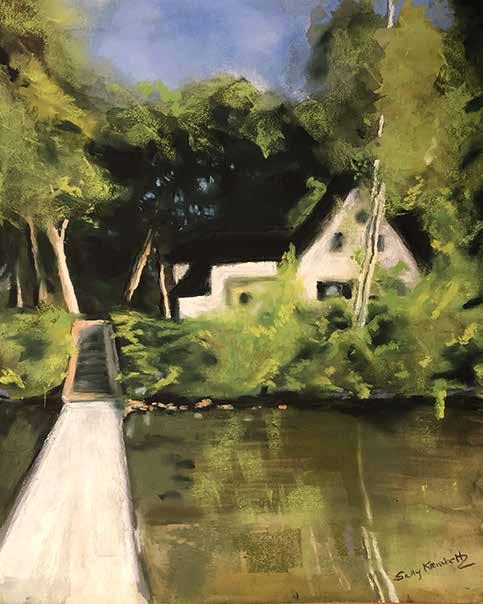
2024 April POETRY & WRITING © liveencounters.net
L A W A N D A W A L T E R S © LaWanda Walters
“Lake House” by the late Sally Kamholtz, image courtesy of LaWanda Walters.
Cat, Goldfish, Water
after a painting by
Tamara Krendel
The Siamese cat is the arc, here, the necessary story of desire, of window-shopping, as she peers down into the bowl. What a lark
to reach that pearly thing shimmering, and she’s up on her back toes, balancing, one paw inside the bowl’s rim, poised as a ballet dancer, her romance
with the being that glimmers in water, below the surface which reflects like a shield in light, a parallelogram, a field to be tilled if this were another painting, if the ochre
and blue shadows contained within the glass were in a different context. Shadows like trees loom in the miniature distance, across the surface or the field, all encompassed within the cosmos
of the fishbowl, watercolors being what they are: difficult, artlessly expressive, the cat and the water a little Grecian urn captured in its timeless turn.
© liveencounters.net POETRY & WRITING April 2024 Celebrating 14th Anniversary
L E T T I N G T H E L A K E H O U S E G O

2024 April POETRY & WRITING © liveencounters.net
L A W A N D A W A L T E R S © LaWanda Walters
“Siamese Cat Looking into a Goldfish Bowl” by Tamara Krendel, image courtesy of LaWanda Walters.
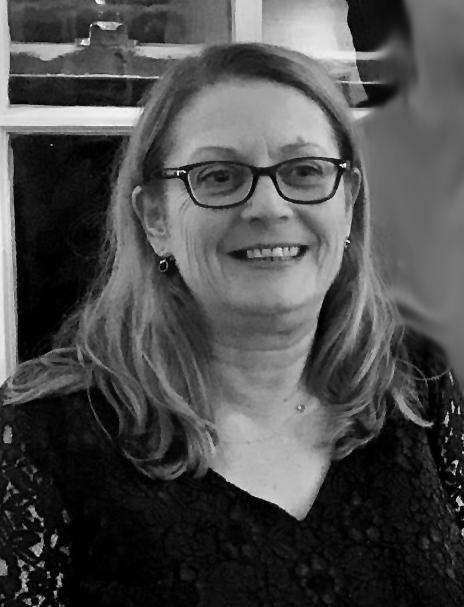
© liveencounters.net POETRY & WRITING April 2024 Celebrating 14th Anniversary G O F I S H
Linda Adair
A poet, artist, as well as publisher of Rochford Press/co-editor of Rochford Street Review, Adair grew up on Darug country without knowing whose land she stood on. She now lives on Darug and Gundungarra lands in the Blue Mountains, Australia, and pays her respect to the Traditional Custodians of Country which always was, and always will, be Aboriginal. Her debut book The Unintended Consequences of the Shattering was published in 2020. Her poems have appeared in Live Encounters Poetry & Writing, P76 the Sonic Poetry Festival Issue, Ozburp, To End All Wars, Messages from The Embers, Poetry for the Planet, Pure Slush Volume 25 and Work! Lifespan Vol 5 as well as various journals. During a recent Varuna residency, she began working on a verse memoir of her family’s complex relationship to unceded land. She has been a featured poet at various venues including La Mama Poetica and a Sonic Poetry Festival event. And has been interviewed for 3CR Spoken Word and is reading at the World Poetry Day event in Sydney on 21 March.
Go fish
for ideas beneath waves of consciousness try to hook the line enter the indigo depths of the unconscious to breach in dreams as images flash silver arabesques of feeling from another place and a time yet to be the spawn are slippery and hard to catch.
2024 April POETRY & WRITING © liveencounters.net
L I N D A A D A I R © Linda Adair
‘Meeting’ you at 4 am
Clocks have no meaning for you now your wrist is bare you no longer carry a phone
At the train station as old friends we embrace begin to say goodbye but you tarry
I laugh at this discharge emotion -you have all the time not in this world
You announce Lynda with a Y just spent half an hour with you Details please!
then a knitting nanna sits down dressed like a pint-sized Anna Wintour in unison you both say why do you want to know?
Dumbstruck I do not explain merely gaze at you more 26 than 62 the self you could have become always that mop of brown curls big green eyes spry thin ready to ramble or climb the steep cliffs of your ambition
© liveencounters.net POETRY & WRITING April 2024 Celebrating 14th Anniversary
G O F I S H
unbidden you recall the line sea and breeze and night and water and I respond with the next and two scampering raggamuffins
my words for us inscribed in silver on that long-since-lost Georg Jensen cuff to claim my heart before I left for Canada
no matter you intended to plough furrows of wordly success even on that first train trip amid a train strike
As the train enters the underground you bemoan your sister’s distance she never takes my call anymore and isn’t on social media much
I have just been in touch with her as we have friends in common and I mention we caught up at a recent funeral.
But I don’t tell you it was yours.
2024 April POETRY & WRITING © liveencounters.net
L I N D A A D A I R © Linda Adair
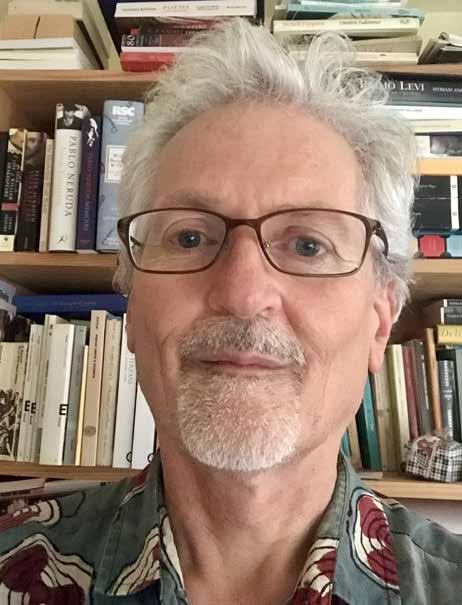
© liveencounters.net POETRY & WRITING April 2024 Celebrating 14th Anniversary P A T R I A
Edward Caruso
Edward Caruso has been published by A Voz Limpia, Australian Multilingual Writing Project, ‘La Bottega della Poesia’ (La Repubblica, Italy), Burrow, Communion, Kalliope X, Mediterranean Poetry, Meniscus, Melbourne Poets Union, n-Scribe, Right Now, StylusLit, TEXT, Unusual Work and Well-Known Corners: Poetry on the Move. His second collection of poems, Blue Milonga, was published by Hybrid Publishers in 2019. In August 2019, he featured on 3CR’s Spoken Word program.
Patria*
She left Moldova four years ago and speaks Italian with Emilian cadences.
Since the last trip home her family calls her ‘the Italian’.
She talks of Pushkin.
On my praising him, she asks: ‘Why do you admire Russian writers?’
‘When one is in his early twenties and reads Dostoyevsky for the first time there are emotions,’ I reply.
Such writers claimed as her own, the air that we’ve brought, from further down the Po Valley and beyond, we speak of her time in Parma, any aspiration possible.
On farewell her presence remains, among recollections of Tolstoy’s last journey, his death in a railway station and the departures announced in this one, a link, if only in passing.
* Homeland
2024 April POETRY & WRITING © liveencounters.net E D W A R D C A R U S O
Edward Caruso
©
There was once an Austrian in me, too*
Way past the forlorn pines that whisper above the Sunday walkers of Vienna, the Mozart parodies, eighteenth-century costumes and perfumed just-mowed lawns of Sigmund Freud Park, Tibetans in orange saris dance to camera eyes and mist-like summer parodies.
Beyond the Hapsburg gates and St Stephen’s homily to the warm tourist morning, as the sun frisks buskers, one plays the statue, painted in gold, mimicking stillness.
The crowd will murmur, as if some forsaken shower could wash the precious metal away. No one gives coins to the twitching figure, just bread for pigeons that land on his wig.
The Austrian empire has long abandoned its canons, armies that scaled the continent hibernating forever like the Caesars, ghosts of the Ottomans, Alexander and the Huns.
Borders have shrunk and there’s the shadow of a soldier who left for Italy during the Napoleonic wars. Almost two centuries later, his contours once believed in me, when I was in Istanbul in 2000 some did approach, speaking a fluid German that had me thinking the Hapsburg soldier’s DNA was part of mine. I’d shrink away, only knowing how to reply in Italian or English to the surprised faces who must have deemed me apocalyptic. But languages don’t resemble the moon’s landscape, they’re earthbound and function when gravity allows the inner ear to fulfil the promise of Evolution.
© liveencounters.net POETRY & WRITING April 2024 Celebrating 14th Anniversary P A T R I A
Civilisation can be so global that one feels connected to places one hasn’t lived or set foot in before. We have all manner of nations and flags, and as pure as we are to alphabets or expression, let all Mozarts flock to Vienna. Let them alphabetise music from the soapbox of their subconscious, post-Freud, and dialogue with the collective entity of the virtual universe and its technologies. May we all be blessed, no matter how much Mozart loathed Wien. His notes are still with us, as the Tibetans of the park, language reputedly more erudite than any myth that escapes us.
* Based on a family story concerning Austrian ancestry that turned out to be a myth thanks to family history research by my sister 15 years after this poem was written. Hence the title change from ‘There is …’ to ‘There was once …’.
2024 April POETRY & WRITING © liveencounters.net E D W A R D C A R U S O
Caruso
© Edward
East*
Sing to me of the man, Muse, the man who twists and turns … Homer, The Odyssey, trans. R. Fagles
1
When you set out on your journey, remember that provisions could run out or be lost, or that friends may abandon you halfway.
Should wounds never heal, if the sea drowns few emotions, skin long blistered, appeal to your gods.
Humility, the answer to that wretched feeling of leaving so many behind who will never understand why you remain adrift.
2
When you’ve lit your first fire on new coastlines, at the first hope of sailing on – wait.
When you stray from the comforts of roasted meats, and the cold of early morning is greeted by a plunge into the deep, love the water and its surf, invoke the sun as the tide drags you beyond.
© liveencounters.net POETRY & WRITING April 2024 Celebrating 14th Anniversary P A T R I A
3 Remember what it felt like to be home?
All is restored in grief for abandoned children, new lodgings to be built and shore fortified.
4
Each inlet a reference point by a sea so transparent you dive to the bottom to view the sky from beneath, saltwater the wine of horizons, a sun out-glowing any fire, other sailors will drift by, your presence the light of lands that could lie ahead.
5
Discard final testaments. You, another sailor gone to your maker.
* Sometimes we don’t know who we are; who we were; who we will be.
2024 April POETRY & WRITING © liveencounters.net E D W A R D C A R U S O © Edward Caruso
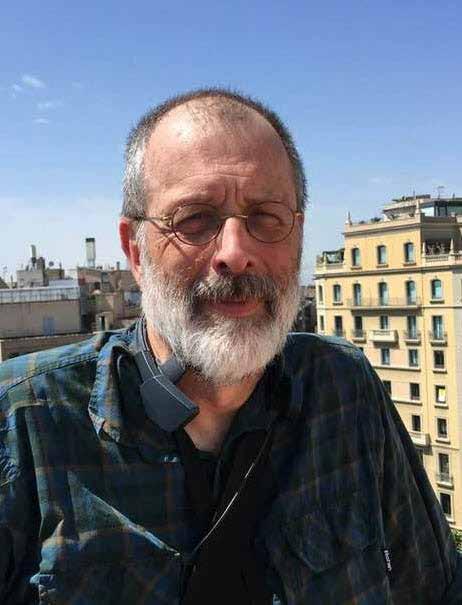
© liveencounters.net POETRY & WRITING April 2024 Celebrating 14th Anniversary E D W A R D H O P P E R
Jordan Smith
Jordan Smith is the author of eight full-length books of poems, most recently Little Black Train, winner of the Three Mile Harbor Press Prize and Clare’s Empire, a fantasia on the life and work of John Clare from The Hydroelectric Press, as well as several chapbooks, including Cold Night, Long Dog from Ambidextrous Bloodhound Press. The recipient of fellowships from the John Simon Guggenheim and Ingram Merrill foundations, he is the Edward Everett Hale Jr., Professor of English at Union College.
Bowling with Luchadores
In San Diego, which I now acknowledge as a city of miracles, My son went bowling with luchadores.
Can you even begin to imagine my envy? He drove From Los Alamos, north of White Sands, south of Area 51,
Sites of fall and inferno and revelation, Wandering that desert to stand at last with reverence in the presence
Of King Rey Mysterio and his son, El Hijo, their masks, scarlet and black, Their rituals of violence and wonder and surprise, and then
To laugh over beers with the flame-infused Fenix, disciple Of splendor and self-abnegation, as the mottled globes
Spun headlong and the pins split in chain reaction, tumbling Like the dice God doesn’t throw, who left that to us.
2024 April POETRY & WRITING © liveencounters.net
J O R D A N S M I T H © Jordan Smith
Edward Hopper: Studies of Men in Hats and an Arched Window
A derby and a trilby, even a topper, and this slant upper-story window, An office, probably, above a bank,
Where we went with our fathers (were we eight or ten?)
After a haircut, after a stop at the drugstore, A sneaked look at the Police Gazette in the magazine rack
While the pharmacist chatted and filled the prescriptions,
And then across the street, along the canal, to the hardware store’s Long building of low rooms that went on and on, Racks of rakes and picks, boxes of bolts and fasteners, Matchbox Cars on sale by the cash register
We knew better than to ask for,
And then, in the Bank & Trust, past the oak cashier’s window and the gold-trimmed vault
With a barred door, where the safe deposit boxes were, And up the stairs, for a handshake and a chat with a friend from church
Wearing a dark suit with a Masonic pin, our fathers on a day off
That turned into a week, a long year,
In khakis and a Pendleton shirt, fedora pushed back, While the man in the suit offered suggestions, condolences, Canadian
Rye from a bottle in the file drawer, and we counted the cream and green cars
Heading up North Main past the cream and green Victorian inn
On one corner of the intersection with West Church Street, a gas station
On one diagonal, and the Baptists and Congregationalists on the other,
Which is where we’d go on Sundays, hats resting on our knees
In the back pew of the balcony, with the old men, Who whispered and nodded through the sermon, Counting the squares in the screen hiding the organ pipes, When all of this wasn’t over, not by half.
© liveencounters.net POETRY & WRITING April 2024 Celebrating 14th Anniversary E D W A R D H O P P E R
Elegy for the Master of the Declarative for Norman
Dubie
There is a freedman in a long oilcloth coat
Playing The Eagle’s Whistle on a gourd banjo In an abandoned meeting house in Maine.
As snow falls through the buckling roof,
His notes bend into the long lament you might imagine,
Sitting on one of the warped oak pews
You hauled onto a cart, then home through the frozen woods
And into your study in the parsonage by the lake
Where the woodstove chills the corners of the room.
Eloquence, as you have observed, is a cold comfort
To the oppressed, to the afflicted.
Silence, as you observe it, is another.
You can hardly make him out in the darkness.
Such music, such earned and infinite resentment,
Such claims upon us …
You will write in your sermon for the following Sunday,
To be delivered to the congregation of birches
Nodding in the storm outside the broken stained-glass windows.
2024 April POETRY & WRITING © liveencounters.net J O R D A N S M I T H © Jordan Smith
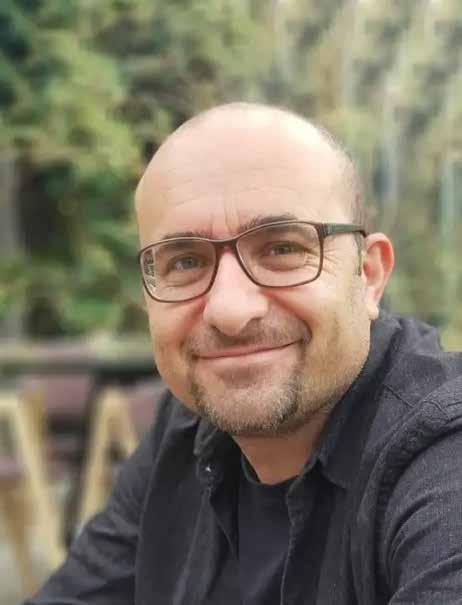
© liveencounters.net POETRY & WRITING April 2024 Celebrating 14th Anniversary D E S P A I R
Ndue Ukaj
Ndue Ukaj was born in Kosovo in 1977 and is a writer, essayist, and literary critic. To date, he has published five books of poetry, one short story collection, one novel, and two works of literary criticism. He has won several awards including the National Award for Best Book of Poetry published in Kosovo in 2010. His works have been featured in distinguished international anthologies and journals and have been translated into numerous languages. Additionally, he has authored a dozen articles in the fields of culture and politics.
Translated from the Albanian by Edita Kuçi Ukaj
Despair
Despair has no home, but dwells wherever meaning is lost and the story of the Other begins. Where false witnesses take the big step forward, with smiling eyes and a poisoned heart.
They wake up with paintings of Pilate in their eyes. They soak the dried bite in the deep dish of betrayal.
They always have nails to crucify the Other. They have memorized, crucifixion. They have time for hatred and no time for love.
Where I Am is beautiful, views stretch like the infinity of mountains.
I do not like the story of the Other who is caught up in nothingness; and on a beautiful evening like this I say to myself: my compassion is solar, circumstantial -I do not want to hold my smile hostage.
2024 April POETRY & WRITING © liveencounters.net
N D U E U K A J © Ndue Ukaj
That life is beautiful
That life is beautiful you don’t need further proof, neither guides, neither economic experience nor scientific statistics. It’s enough to wake up in the morning and see the dawn of the new day, hills undressed of darkness, trees freed from night captivity and light-wings girls walking with the wind. Then listen to the song of the birds or to see the wonder of a mountain landscape.
How many landscapes are before our eyes?
It is enough to have someone’s hands which embrace you and you see the heavens open and feel how all the emptiness of the world is filled.
That life is beautiful you don´t need much proof it´s enough to have a roof to shelter the pain for the dissolved desires.
Life is also full of madness, and for that doesn’t need much proof.
It’s enough to know that Ernesto Sabbato showed that a hungry man in a concentration camp was forced to eat a live mouse.
© liveencounters.net POETRY & WRITING April 2024 Celebrating 14th Anniversary
D E S P A I R
Oh there is much more madness that revolve around us: storms, wars, strong winds, viruses that plague death and misery.
However, you never need too much news, you can free your mind from captivity with a sweet hug and write an amazing book for tomorrow.
2024 April POETRY & WRITING © liveencounters.net
N D U E U K A J © Ndue Ukaj
Conscience
The last hour of the lesson by agreement was devoted to melancholy. To Study clearly why the stars shine in the hours of broken feelings for something we lost, that a lesson we never learned.
Good and evil live under one roof and they never break their marriage.
While sentences form the power of feathers and the birds sing in the air of wrath a grim rain falls on me
And someone through him flies into the age of light where insufficiency is not questioned nor the power of the stars.
Today women are confused, dry trees that justify the lack of water, lack of love.
How many battles there are for things we do not achieve. For the threat, we cause to fate with a volcanic look and fruit in the free conscience.
Yes, the cathedral dressed in white how it happened that it was erased from my eyes.
© liveencounters.net POETRY & WRITING April 2024 Celebrating 14th Anniversary D E S P A I R
Mirror
I wake up and I do not like mirrors, They seem to be an extension of the unwanted dream. But I need to look mi at them, in the morning when I take the path to you, my new day.
When I take the road to you, my new day, you who hold the power of miseries of all the hours of humanism surrounded by high walls.
You also told me you do not like the mirror. Because you hate her contemptuous look or the stain is hidden on your forehead.
And I see you less and less happy when you make your way to the mirrors. There you really see your face. An expectation that resembles a lifetime.
2024 April POETRY & WRITING © liveencounters.net N D U E U K A J © Ndue Ukaj
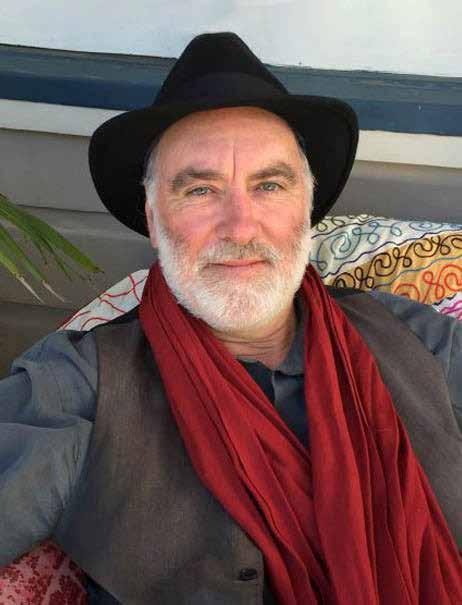
© liveencounters.net POETRY & WRITING April 2024 Celebrating 14th Anniversary X A N A D U
Justin Lowe
Xanadu
I.
this town’s main export is bad advice. oh yes, and the young and the dreams only the young can dream.
I moved here after a brief conversation with a scion of the town. like any tiny god he worried over the words his world was losing.
he thought maybe I could help. there was no job offered, no sinecure, just a schooner’s worth of bad advice.
it is a tourist town, so they also import stupid by the day, the kind of stupid that laughs at the fauna,
and not in a kind way. this town is so pretty it defeats its own purpose.
II.
there is a sign on the highway boasting the town’s elevation, and a sign the other side boasting its distance from somewhere else.
this town sits high, very high. you would think you could see the whole world from this high.
but the mist doesn’t lift until the first siesta, and then there is lunch and then there is dinner.
2024 April POETRY & WRITING © liveencounters.net
J U S T I N L O W E © Justin Lowe
Justin Lowe lives in a house called Doug in the Blue Mountains west of Sydney where he edits international poetry blog, Bluepepper. Justin has just completed a collection of short stories while his ninth collection of poetry sits on the publisher’s desk.
Las Ramblas
I.
we just thought we would come for the summer. people made such a fuss, but really it is not our war, they are fighting amongst themselves, as usual, and our navy is guarding the straights.
the train stopped at Bilbao in the small hours where men were stretchered on or stretchered off, I really cannot recall now, except that I remember being roused from a lovely dream by all the jolting and by some horrid smell,
like when Agnes, aunty’s favourite mare, gave birth to that still born and duly slumped to her knees and died with a final whinny. do you remember it, Hatty? we had all put so much hope in that foal.
© liveencounters.net POETRY & WRITING April 2024 Celebrating 14th Anniversary
X A N A D U
II.
on our first night in Barcelona we heard a flurry of bombs toward the water but nothing after that apart from the occasional firecracker and the screams of children down the Ramblas, you know how the Spanish are.
one of Daddy’s foreman saluted us, right there by the cafe where we’d been staying. I thought it the height of mendacity! he shouldered epaulettes, dear Hatty! when he should have been home where he belongs helping Daddy, certainly not here, knee-deep in mud, and the sordid inference of their comrades and thous. I tried to leave a tip for the waitress with the blue-lipped baby but he stayed my hand, actually touched me, can you believe it, Hatty!
Oh Hatty Hatty! this world of ours, as Daddy would often say before that German shell took half his head away, is not quite where we left it. and it is still such a struggle at home.
2024 April POETRY & WRITING © liveencounters.net
J U S T I N L O W E © Justin Lowe
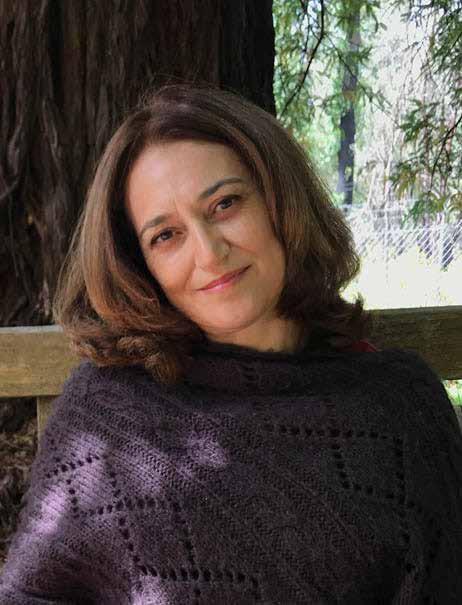
© liveencounters.net POETRY & WRITING April 2024 Celebrating 14th Anniversary T H E F L I G H T L E S S B I R D
Caterina Mastroianni
Caterina Mastroianni is a poet and educator living in Sydney on the land of the Cadigal and Wangal people of the Eora nation. She has published poetry in various literary magazines and four Australian anthologies, including Australian Mosaic, and most recently in Burrow, Mediterranean Poetry, Honeyguide, The Ekphrastic Review, Live Encounters Poetry and Writing Journal, Poetry for the Planet: An Anthology of Imagined Futures and Medium. https://www.austlit.edu.au/austlit/page/A14153
The flightless bird
Lord Howe Island
Palms claw off exploitation, exhale every new minute I inhale as I cycle away from settlement along the winged curve of this crescent island. My sand-cushioned feet scrub off consumption, hike towards smaller footprints, touch her sheltered lagoon.
I slide promises into the lagoon, corals grip their reef, my breath grips sanctuary over the abandoned anchor, the channel it unzipped, and over the settled turtle polishing the anchor with its’ shell, while surgeonfish scalpel algae off her elongated neck.
I drop water-hugging words from out of the lagoon onto magma-cold rocks, coral-graveyard beaches, and a palmy forest of trees teeming with protesting terns, winning their turn of the island and I give way again and again to the flightless bird.
2024 April POETRY & WRITING © liveencounters.net
C A T E R I N A M A S T R O I A N N I © Caterina Mastroianni
The untouched bird
Lord Howe Island
It was too late for the fearless woodhens purring in the hunters’ hands.
It was too late for the rat-eaten chicks hurled into the sky by a squall.
It was too late for the shearwaters’ shrieks falling into a dead space.
It was too late for this museum bird with its’ cut belly, inside,
the bottle caps like fish-eyes, the plastic worm-like slivers, the nurdles like soup ingredients,
scold the icons and brands I digested, the swollen Phoenix and Horus gods, the worn-out Nestlé and Dove wrappings
and I wonder if it is too late for me to dream of untouched birds.
© liveencounters.net POETRY & WRITING April 2024 Celebrating 14th Anniversary
T H E F L I G H T L E S S B I R D
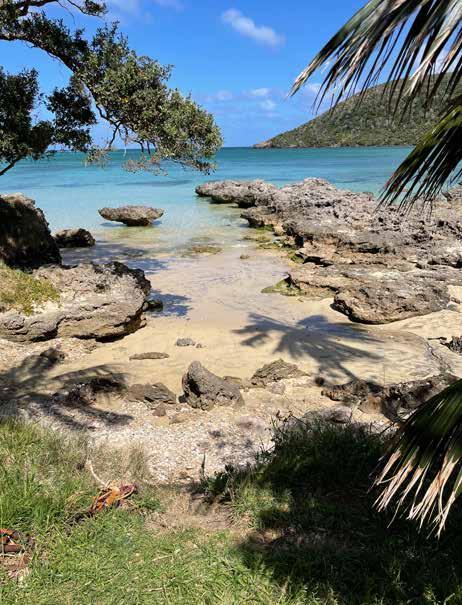
2024 April POETRY & WRITING © liveencounters.net C A T E R I N A M A S T R O I A N N I
© Caterina Mastroianni
Lord Howe Island. Photograph by Caterina Mastroianni.
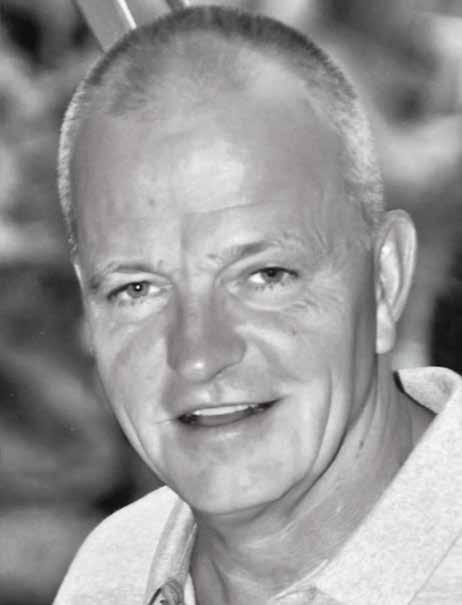
© liveencounters.net POETRY & WRITING April 2024 Celebrating 14th Anniversary T H E R A P Y
David Ratcliffe
David Ratcliffe is a poet, playwright, lyricist and short story writer from the North West of England. He is a member of the international poetry study group Worldly Worders. He has been published in a number of magazines both on-line and in print. In 2016 his poem ‘Home Straight’ featured at the Fermoy International Festival. The stage play ‘Intervention’ was produced for World Peace Day. The main influences on his writing include; Ted Hughes, Ann Sexton, W. D. Snodgrass, Allen Ginsberg, Jack Kerouac, Charles Bukowski, James Baldwin, Pablo Neruda and his favourite poet Philip Larkin. His poetry has been published in the following publications: Poetry Pacific Magazine, TRR Poetry, Sixteen Magazine, Mad Swirl Tulip Tree Review (Print Version) Oddball Magazine, Poem Hunter, THE BeZINE, Creative Talents Unleashed, Drawn to the Light Press, Live Encounters and The Galway Review. His poem ‘He Crawled’ was placed third for the Pushcart Prize in the Blue Nib magazine in 2018. Also, in 2018 his poem ‘Pour me a Vision’ featured in VatsalaRadhakeesoon.wordpress.com for Dylan Thomas Day. His debut collection ‘Through an Open Window’ was released in August 2021. David’s website contains poems from his book, along with new works. https://david-ratcliffe.squarespace. com/
Therapy
I study your face for involuntary impulses that defy bravado, looking for signs of truth.
Unable to break through I drift into the map of nerves behind your eyes, each line white hot and twisted, branded by time.
In search of understanding, I crawl through the valleys of your frontal lobe and bath in the stagnant fluid of your mind swimming through a walnut maze of defiance.
I dive further into fatty tissue challenging each cell to offer a clue an explanation for your indifference but what ails you appears stolen forever at the hands of your violator.
Yet, on retreating through the retina of a bloodshot eye
I slither down the trail of a single tear which carries with it a message of hope and a reason to return.
2024 April POETRY & WRITING © liveencounters.net
A V I D R A T C L I F F E
David Ratcliffe
D
©
Passage to Silence?
Can a flash moment be harnessed by a gentle walk to a tranquil place?
Can caution deliver hindsight at the point of eruption?
Could control be found when molten vomit rises in the throat of the beast?
Could you nullify the treat by choosing another path at the signpost, taking with you growing resentment?
Even if choice is possible when passion takes hold could you handle the threat where you’d be left cultivating, suppressing potential remorse while encouraging danger at the next turn?
Maybe a creative solution lies within the passage to silence; a place of reason out of sight of the flickering kindle that threatens to ignite the inferno?
© liveencounters.net POETRY & WRITING April 2024 Celebrating 14th Anniversary
T H E R A P Y
So, when injustice moves plates that grind in your head when the crust feels a tremor causing bead bleeds on temple veins with no time for contemplation would you choose evacuation?
Maybe beating the retreat might diminish the recoil before distress ascends to the loneliness of anger.
Sending you scurrying deeper into the river of your mind to aftermath moments where a smouldering swirl fuels regret as flames lick at the feet of consequence leaving your charred remains to sizzle in the bullrush.
2024 April POETRY & WRITING © liveencounters.net
D A V I D R A T C L I F F E © David Ratcliffe
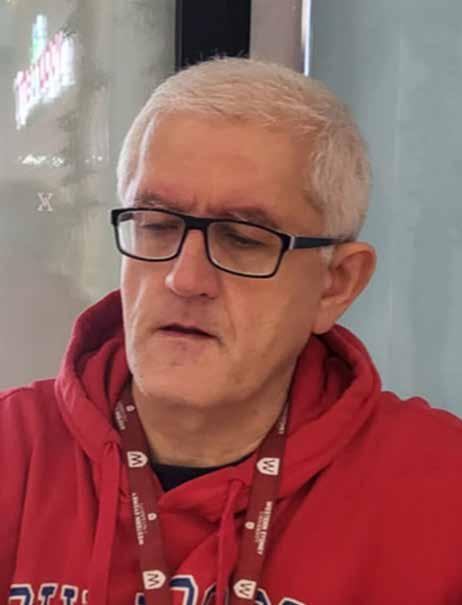
© liveencounters.net POETRY & WRITING April 2024 Celebrating 14th Anniversary M A N N A B H A V
Dorian Stoilescu
Dorian is a bilingual writer (English and Romanian), lives in Sydney, and is a lecturer at Western Sydney University. Born in Galaţi, Romania, he has participated in writing activities in both Romania and Australia. He primarily writes poetry but also contributes to stories, plays, and essays. So far he published three volumes of poetry “under the wheels of truck”, “the stethoscope”, and “seeds, drone, memories – about Ukraine”. The fourth volume “on a too distant beach” is in the final stage under review. He has also contributed to English-language publications, including the ‘Western Sydney EZine Anthology,’ the ‘New Writers Group Inc. Anthology,’ and ‘41 Arguments Avant La Lettre - Romanian/Australian Literature Anthology, Articulation Project. https://www.austlit.edu.au/austlit/page/20908909
Mannabhav
zero hour. always - vertical tunnel stuck in the crypt of the ocean - missiles continuously hitting our hearts… atomic deities exploding,
when the darkness is burned by silence, when all the steps collapse when every day is sunday when words become birds
and you a nameless star
2024 April POETRY & WRITING © liveencounters.net
D O R I A N S T O I L E S C U © Dorian Stoilescu
Narrations
we are bitter roots, wasted, placed into an abandoned spaceship, racing without any controls towards… new stars.
we have no way to stay in one place. it’s like we realize that the ancient terra becomes hysteria for the universe, and the pains deeper than the pits of the oceans, are tsunamis engulfing the moons, meteorites, suns, and stars...
there, the sufferings remain beyond death. deep sap, they feed the desires... yet we are not afraid of death, we are not afraid of what always should have been, after all... that waste of ours, that stretching through pains, increases… higher than we thought ever. we eventually become the forgotten talisman touching masks memories spirits.
© liveencounters.net POETRY & WRITING April 2024 Celebrating 14th Anniversary
M A N N A B H A V
last night
last night I drove a tank, as if I wouldn’t have ever learned how to drive, as if I wouldn’t have had any direction, as if I didn’t know where I was, as if nothing was mine - as if I was programmed to kill.
returned from Ukraine, I saw it … I saw it all… … the whole thing… I went in full force. everything… everywhere… levelled all… every soul and brick ever remembered…
I demolished my own house – which I had deified it for so long. then I shattered my whole hometown’s buildings. all… was left behind, just mountains of rubble...
then I found myself on the side of a road… australian... I was watching endless convoys of trucks. the sun dawned herds of hopes, fears, trials. I was dozing in traffic in a tight car. a new day. trying to get back, I will attend to work quickly. close to me, a group of kangaroos stare at me in amazement.
2024 April POETRY & WRITING © liveencounters.net
D O R I A N S T O I L E S C U © Dorian Stoilescu

© liveencounters.net POETRY & WRITING April 2024 Celebrating 14th Anniversary T H R E E D A Y S
Michael J. Leach
Michael J. Leach (@m_jleach) is an Australian poet, critic and academic. Michael’s poems have appeared in journals such as Cordite Poetry Review, exhibitions such as the Antarctic Poetry Exhibition, anthologies such as Poetry d’Amour 2022: Love Poems (WA Poets Incorporated, 2022), and his two poetry books: Chronicity (Melbourne Poets Union, 2020) and Natural Philosophies (Recent Work Press, 2022). Michael has won the UniSA Mental Health and Wellbeing Poetry Competition (2015), received a commendation in the Hippocrates Prize for Poetry and Medicine (2021), jointly won the poetry category of the Minds Shine Bright Confidence Writing Competition (2022) and had a poem shortlisted for the Woollahra Digital Literary Award (2023). During 2024, Michael will publish two new poetry books: a collection of haiku and senryu (In Case of Emergency Press) followed by a collection of poems exploring sounds and emotions (Ginninderra Press). He lives on unceded Dja Dja Wurrung Country and acknowledges the traditional custodians of the land.
Three Days
i. Australia Day
I elect to work from home
ii. Anzac Day the black swan’s bugle
iii.
Election Day
my TV screen glows red blue green teal
2024 April POETRY & WRITING © liveencounters.net M I C H A E L J. L E A C H
© Michael J. Leach
The Bright Sides of La Belle Époque
Paris, circa 1871-1914
Light falls on rippling waters in Signac’s pointillistic paintings.
Artists fill the Montmartre, framing their lives & livelihoods.
Beauty fills the visual fields of quixotic Parisians.
Europe thrives between the Franco-Prussian War & WWI.
Lively people stroll the streets in this fresh, flamboyant fashion.
Lively people share their sheets in Eve and/or Adam’s fashion.
Eclairs share old shelves with new pastries like the Paris-Brest.
Émilie Charmy paints female models from a feminine perspective.
Peugeot automobiles cruise cobblestones, drawn by invisible horses.
Optimism perfuses the cerebra of quixotic Parisians.
Quixote rides a real horse at the New Circus on Rue St-Honoré.
Universities such as the Sorbonne illuminate industrial ideas.
Eiffel’s tower watches over an age-old city lit by electricity.
Note:
La Belle Époque is French for ‘The Beautiful Era’.
© liveencounters.net POETRY & WRITING April 2024 Celebrating 14th Anniversary
T H R E E D A Y S
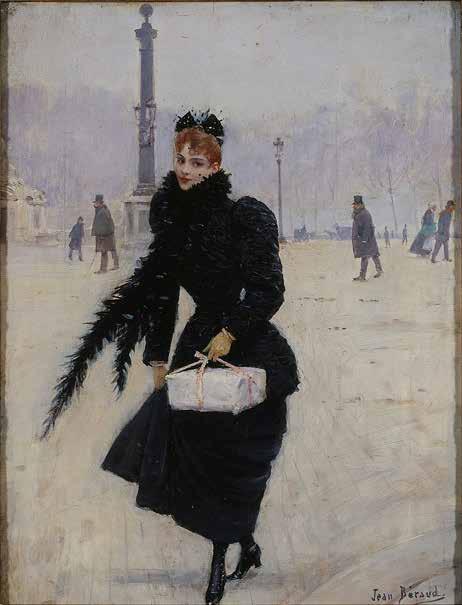
2024 April POETRY & WRITING © liveencounters.net M I C H A E L J. L E A C H
J. Leach
© Michael
Parisian woman on Place de la Concorde, circa 1885. Painting by Jean Béraud.
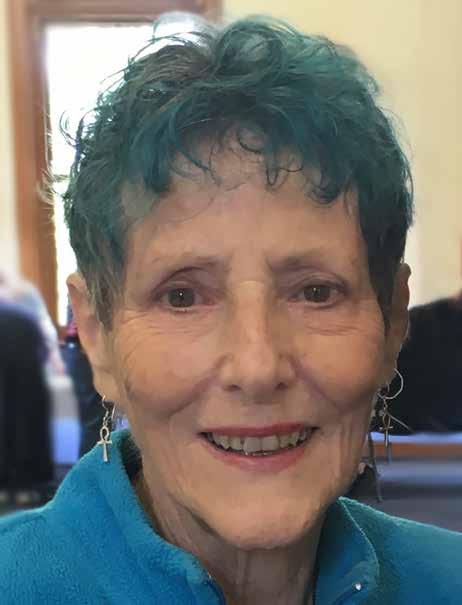
© liveencounters.net POETRY & WRITING April 2024 Celebrating 14th Anniversary N O T E S T O W A R D S A F I N A L I T Y
Patricia Sykes
Patricia Sykes is a poet and librettist. Her poems and collections have received various awards, including the Newcastle Poetry Prize, John Shaw Neilson award and the Tom Howard Poetry Prize. She has read her work widely and it has featured on ABC radio programs Poetica and The Spirit of Things. Her collaborations with composer Liza Lim have been performed in Brisbane, Melbourne, Sydney, Paris, Germany, Russia, New York and the UK. She was Asialink Writer in Residence, Malaysia, 2006. A selection of her poems was published in an English/Chinese edition by Flying Island Books in 2017. A song cycle composed by Andrew Aronowicz, based on her collection The Abbotsford Mysteries, premiered at The Abbotsford Convent Melbourne — now an arts precinct — in 2019. A podcast of this work is available on various platforms.
Notes Towards a Finality
1. Shared
ACGT, DNA’s alphabet lethally creative selves everywhere
wary and configuring one huntsman surfaces as large brown arachnid
nearby a doze of lambs bleating and suckling to keep ewes alive
find a mercy hole crawl into it, dream like a foetus
scribbles of light turn out to be bacteria minute and deadly the wind a sorrow plough churning the white ache
2024 April POETRY & WRITING © liveencounters.net P A T R I C I A S Y K E S
© Patricia Sykes
of lost spines some who travelled by road some by water some who did not know how to drive, some who did not know how to swim
legerdemain then as an exquisite corpse consigned to a silo only to re-emerge as rodent food in lieu of ambrosia
© liveencounters.net POETRY & WRITING April 2024 Celebrating 14th Anniversary
N O T E S T O W A R D S A F I N A L I T Y
2. Personal
The T at the end of losT as adamant as a border guard the barrier between then and now confining us to absence
In losing each other to the invisible we’ve rendered each other mute your voice a canticle of dust our love reduced to junk like the detritus of a particle collider and the dying worlds therein
2024 April POETRY & WRITING © liveencounters.net
P A T R I C I A S Y K E S © Patricia Sykes

© liveencounters.net POETRY & WRITING April 2024 Celebrating 14th Anniversary T H E B A R I S T A ’ S N A M E I S J E S U S
Claudia Serea
Claudia Serea is a Romanian-American poet, translator, and editor with work published in Consequence, The Southern Review, Field, New Letters, Prairie Schooner, Oxford Poetry, among others, as well as featured on The Writer’s Almanac. She is the author of seven poetry collections, most recently In Those Years, No One Slept (Broadstone Books, 2023). Serea won a Pushcart Prize, the Joanne Scott Kennedy Memorial Prize from the Poetry Society of Virginia, and the New Letters Readers Award for her poems. She is a founding editor of National Translation Month, serves on the board of The Red Wheelbarrow Poets, and co-hosts their monthly readings
The barista’s name is Jesus
His hands are quick, and he doesn’t smile.
It’s a busy spot close to Central Park where people from all over the world wait for Jesus to serve the hot with hissing iced and the bitter with the sweet.
He watches the long line, who’s first, who’s last, writes down the names on paper cups, and counts the money.
What can I get you today? he asks me when I get to the front.
We order Peach Tranquility Tea for you, dark roast for me, and we step aside, waiting for Jesus to call our names.
© Claudia Serea
2024 April POETRY & WRITING © liveencounters.net C L A U D I A S E R E A
My suitcases were real. My life was make believe
June 21, 1995
I stayed up all night, packing my two suitcases, thinking what to bring, what not to bring.
I decided against the heavy winter coats as if I was emigrating to a tropical climate, and made room for white bed sheets, a towel, a tablecloth, and the steel flatware I bought at the Russian flea market.
My cat hid in the folded laundry and jumped out, making me laugh. I couldn’t take her with me, though.
I remember sunrise through the windshield and how my family stood at the gate for a last photo: my parents, my brother, my brother-in-law and his wife, my husband, even my other sister-in-law we only saw at christenings and funerals.
To be honest, it felt like someone’s funeral, an invisible corpse, hanging in the air above us— but I couldn’t quite put my finger on who that was.
© liveencounters.net POETRY & WRITING April 2024 Celebrating 14th Anniversary
T H E B A R I S T A ’ S N A M E I S J E S U S
Waiting for the traffic light to change
In the middle of the city, a cut opens, and the passersby peer inside:
A breakup. The death of a cat. Someone got laid off, or their dad didn’t make it through the night.
I don’t give a damn! The man yells in the crowd waiting for the traffic light to change.
The woman next to him walks slowly, crying, surrounded by people who carry diagnoses, conflicts, grief, folded, piled, stapled, or stacked in handbags, briefcases, and pockets. Inadvertent voyeurs, we witness this asphalt and gravel, those pebble-like feelings bothering the shoes,
those tears, shed or unshed.
We wait in a compact herd for a sign, anything to say this makes sense.
The light turns green, and we walk on.
2024 April POETRY & WRITING © liveencounters.net C L A U D I A S E R E A © Claudia Serea
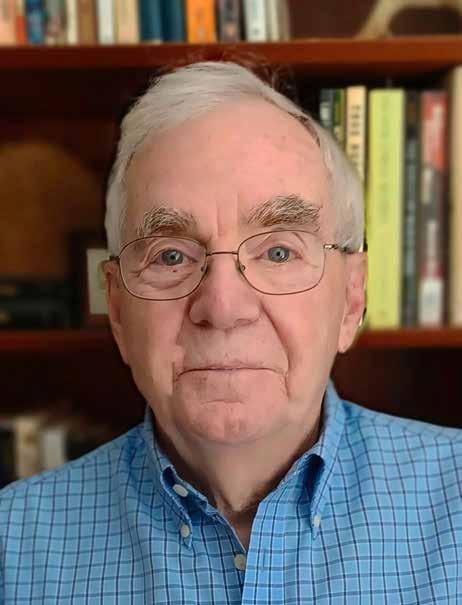
© liveencounters.net POETRY & WRITING April 2024 Celebrating 14th Anniversary W A R M S H E E T S
Peter A. Witt
Peter A. Witt is a Texas Poet and a retired university professor. He also writes family history with a book about his aunt published by the Texas A&M Press. Peter’s poetry deals with personal experiences, both real and imagined. His poetry has been published on various sites including Fleas on the Dog, Inspired, Open Skies Quarterly, Medusa;s Kitchen, Active Muse, New Verse News, and WryTimes.
Warm Sheets
Bed is still warm, shadows of bodies still impressed, scent of night dreams linger.
Morning breeze gently sways sheer curtains, sunrays warm rumpled pastel sheets.
Outside twittering of sparrows pecking for flower seeds fill the air with laughter.
Overhead the honk of geese fill the sky with wonder, mockingbird pauses his chatter.
Aroma of freshly brewed coffee wafts among the kitchen table chairs, a hint of marmalade and toast to follow.
Hands caress each other in the pastel light, knowing a new togetherness has begun, warm sheets smile in anticipation.
© Peter A. Witt
2024 April POETRY & WRITING © liveencounters.net P E T E R A W I T T
Pushing Their Way Through
Sidewalks can’t stop the growing grass, which occupied the dirt before workers in overalls, hard hats with heavy equipment, rebar, and concrete showed up to turn a path of green into off-white.
Not to be denied, tendrils of grass poke their way between the carefully laid squares, welcomed by the ants who too have found their way from underground to the surface.
And then the dandelions appear, begging for the sun, bees hurriedly buzzing round their flowers as a phalanx of weed whackers cut and spew the crevice invaders, who come afternoon must begin their journey to the surface again.
© liveencounters.net POETRY & WRITING April 2024 Celebrating 14th Anniversary
W A R M S H E E T S
Glass Cleaning and Other Remembrances
You asked me what I’d remember most when death’s fingers remove you from my view, I replied without hesitation, the curl of your lips when you witness my old man glasses, once again smudged with a mysterious fog that seems to attack the lenses of an 80-year-old’s bifocals.
Knowing I can produce the twists near the corners of your mouth, I seldom clean my glasses, even smudging them on purpose with my fingerprints so I can witness the color growing in your cheeks, feel your eyes sparkle with love, and hear you say something like,
give them here, I’ll clean them, again, for you, with the soft emphasis on again.
With your passing, I clean my glasses every day, whether smudged or not, just so I can remember your half smile, the love in your eyes, and way you teased me with your words.
2024 April POETRY & WRITING © liveencounters.net
P E T E R A W I T T © Peter A. Witt

© liveencounters.net POETRY & WRITING April 2024 Celebrating 14th Anniversary F R O M T H E T O P O F P A R I T U T U R O C K
Trevor M. Landers
Trevor M. Landers has been widely published in NZ and aboard, He hopes to reprise his 2004 volume, To Rômania with Love to mark the twentieth anniversaruy. His next edited anthology called Ngā Pūrehu Kapohau (The Spinning Turbines) will be launched on 24 March 2024. He is following it up with a similar survey of another part of the province of Taranaki.
From the Top of Paritutu Rock
Far on the horizon the imaginary cone of a far more mammoth mountain stretching out into the South Taranaki Bight the centre scooped out like a kina shell by some primordial eruption twin cones dwarfed by what was there the sentinel of Rua Taranaki.
Along the coast
the black iron sands rim the land laced like a necklace of black pearls the silica sparkling in the benevolence of afternoon the sea, navy and becalmed licking the shore with timeless ennui.
From the top of Paritutu Rock (the more arduous suicide spot) the black heart of the province poured out into huge vats and silos a lake of contaminants spoken about in hushed tones.
2024 April POETRY & WRITING © liveencounters.net T R E V O R M L A N D E R S
© Trevor M. Landers
The Big, Glittering Universe, considered from Okurukuru
The big, glittering Universe is everything that happens. outside the shadow of my emptiness It is bodies of excitation shaking the grass under the gleam of midnight It is your eyes in the wind whispers in the crimson of Rātā trees even the sea feels like your hunger on my skin
The universe is an unelaborated secret floating in the infinities of time and space I cannot imagine it without you Love is the metamorphosis of a butterfly craven obsession of a lepidopterist the very jungle where nightly we come to dance. The Universe is larger than the infinite, the part of us made of nights and destroyed stars twinkling decay It must be for us, if we can still fall in love. Patina of obsidian glow on the waves near Okurukuru moon and the sea renewing their courtship cling with arms and legs & our heads spin like planets
In your hands, atoms and molecules of ancient beings her breasts rising like the silhouette of the Pouākai range a landscape of seduction since time immemorial.
© liveencounters.net POETRY & WRITING April 2024 Celebrating 14th Anniversary
F R O M T H E T O P O F P A R I T U T U R O C K
Climbing the Mounga from Upper Kāhui Road as a Religious Experience
All else lies far beneath me, Or in fact, above,
And I, between two worlds, uncertainly standing
It is a cool, crisp Sunday morning in summer
I am a pilgrim; this is not a climb
But a religious experience, to baptise my soul
Into the pool of this natural world
With eyes uplifted towards a vision of grandeur
Yet without power to soar upward
It is a long climb, trailed by piwakawaka
And old fallen totara rotting on the floor of the forest
The steps to heaven are built with love and dedication
But timid on the land in the face of awe except this constant, strong desire to rise; stronger with each step
It seems so strange the higher up we go—
The farther from earth’s suffering cries, The stiller my heart becomes
I am dissolving into this sacred land.
2024 April POETRY & WRITING © liveencounters.net
T R E V O R M L A N D E R S © Trevor M. Landers
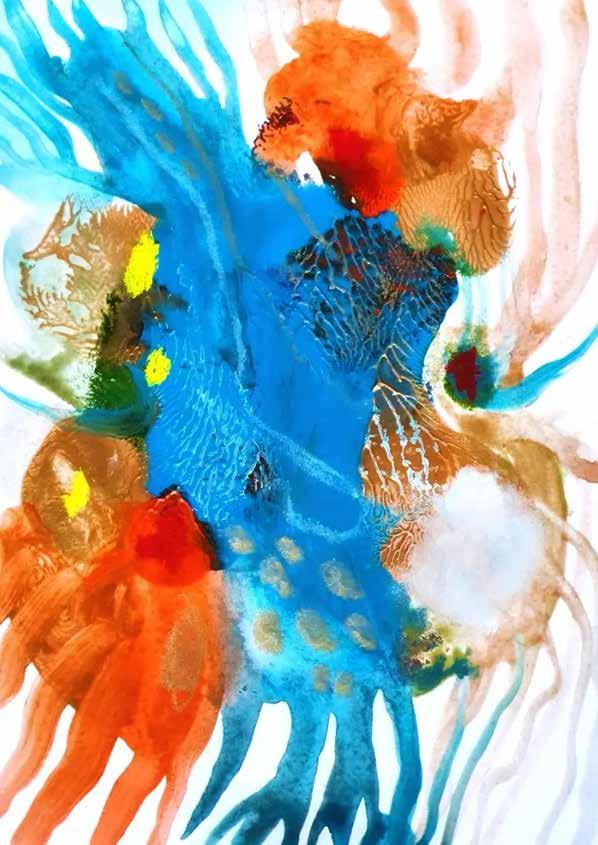

Cover Artwork ‘Fire On Icy Waters’ by Irish Artist Emma Barone Free Online Magazine From Village Earth April 2024 P O E T R Y & W R I T I N G 2010 - 2024



































